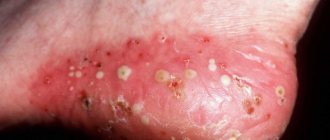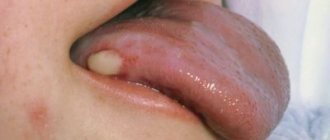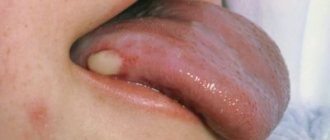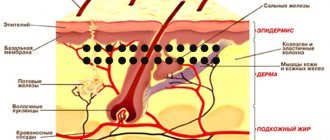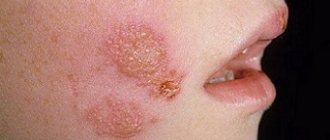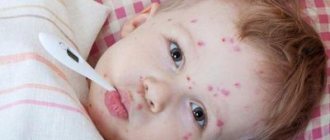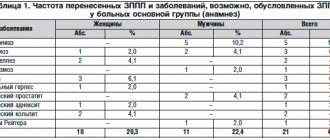Psoriasis (or as it is often called “scaly lichen”) is a chronic disease. The disease primarily affects the skin - the first signs of psoriasis can be traced precisely by changes in the skin in different parts of the body. In addition, in patients with this diagnosis, the nail plates and joints are affected. The pathology is characterized by alternating periods of improvement and deterioration.
According to statistics, today this disease is detected in every 25th inhabitant of our planet. The first signs of psoriasis are usually diagnosed in adolescence. Subsequently, the disease progresses, causing the patient many unpleasant physical and psychological changes. Psoriasis is not an infectious pathology, so patients are not dangerous to others.
Causes of the disease
It is impossible to say unequivocally what is the main provoking factor causing the development of the disease and the occurrence of the first manifestations of psoriasis. At the moment, the study of the pathology continues, and so far it has been recognized as incurable.
It is believed that the basis of the disease is a disturbance in the functioning of the immune system. As a result of the malfunction, T cells (lymphocytes) accumulate in the skin and release proteins called cytokines, which attract even more immune cells to the skin. Once in the skin, they cause inflammatory processes, leading to tissue proliferation due to increased cell proliferation. Impaired growth, division and maturation of skin cells leads to plaques and flaking.
Causes of exacerbations of chronic psoriasis
Exacerbations may occur for the following reasons:
- general hypothermia or frostbite of the skin;
- problems with hormonal levels during pregnancy, puberty, menopause, etc.;
- taking certain medications without medical supervision (complex vitamins, antibiotics, dietary supplements);
- climate change, high humidity, temperature changes;
- unlimited consumption of alcoholic beverages;
- injuries, burns, frostbite and other skin damage;
- infectious diseases, including common acute respiratory infections.
Provoking factors
In addition, the following provoking factors can lead to the appearance of symptoms of psoriasis and the development of exacerbation of the disease:
- Bad habits. Alcohol abuse and smoking are the most important triggers for exacerbation.
- Infectious diseases and AIDS. Psoriasis often develops in patients with concomitant diseases that have a negative impact on general immunity.
- Mechanical damage to the skin. Psoriatic plaques can appear at the site of trauma, scratching and wounds of the skin.
- Medications. The onset or exacerbation of the disease can be provoked by taking certain medications (psychotropic drugs, β-blockers, anticonvulsants, etc.).
- Stressful conditions. The development of the disease is caused not only by strong emotional, but also by physical shocks (road accidents, frostbite, heat and sunstroke, etc.), after which the first signs of psoriasis appear.
- Changes in the environment. Moving to a new place of residence or to a different climate zone is also stressful for the body and can serve as an impetus for the manifestation of pathology.
- Frequent water procedures. Excessive hygiene using hard washcloths and shower gels with aggressive surfactants can lead to a decrease in the natural protective barrier of the skin and worsening of the skin condition with psoriasis.
Conclusion
Types of psoriasis vary in severity, size and distribution of patches. We looked at 6 main ones:
- psoriasis vulgaris is the most common form, in which the spots are more of a cosmetic defect. But, if left untreated, it can develop into other types;
- seborrheic psoriasis appears in areas of dandruff (hence the name) and resembles this disease in external manifestations;
- guttate psoriasis is small teardrop-shaped spots that spread throughout the body;
- pustular psoriasis is the most severe type of psoriasis, in which the papules are covered with blisters containing clear liquid;
- psoriatic arthritis is a disease that is accompanied by joint deformation. Severe form, leads to disability and death;
- erythrodermic psoriasis is a severe form of psoriasis, patches cover more than 90% of the body, and can be fatal.
The type of psoriasis determines its treatment. It is important to recognize the disease in time and make the correct diagnosis. Therefore, if you suspect psoriasis, immediately consult a dermatologist.
Symptoms and main signs
Psoriasis is a systemic disease. It affects the immune system, musculoskeletal, cardiovascular and nervous systems. The patient quickly gets tired, becomes depressed and may experience weakness. But the main symptom of psoriasis is damage to the skin. Plaques can vary in location and size.
At the beginning of psoriasis, the formation of rounded pink and scarlet bumps on the surface of the skin - papules, covered with scales - is almost always characteristic. They can be located on any part of the body, even to the mucous membranes. But most often they appear in the extensor surfaces of the arms and legs, on the lower back and scalp. As psoriasis begins, the patient's psycho-emotional state may worsen. As the disease progresses, the papules increase in size and merge into plaques. During the first days they are only a few millimeters in size. Gradually they grow to several centimeters and capture more and more new areas of the skin.
There are several forms of psoriatic plaques:
- in the form of a tiny rash (spot psoriasis);
- in the form of a tear (guttate psoriasis);
- in the form of rounded elements (coin-shaped psoriasis).
In addition, the plaque can be in the shape of a ring, arc, garland, etc.
The course is characterized by periods of improvement in skin condition and exacerbation - relapses. During relapses of psoriasis in adults, symptoms progress. Plaques can grow significantly and merge with each other. Often the patient feels unbearable itching in the area of flaky spots. The exacerbation of the disease usually occurs in the autumn-winter period. During the period of remission, the plaques turn pale, there are fewer of them, and the itching subsides.
Risk factors (reasons for development)
Psoriasis occurs in approximately 3% of the world's population, regardless of gender. It begins at any age, but most often between 15 and 30 years. There are cases of the disease being detected in infants. The highest prevalence is among representatives of the Caucasian race, less often among the Negroid and Mongoloid races.
The disease is characterized by a wave course with periods of exacerbation and remission. Has an acute onset in most cases. A monomorphic rash of papules merges into larger plaques, which are then covered with white scales.
The etiology and pathogenesis of skin pathology have not been fully studied; both hereditary predisposition and neurogenic nature are assumed. Many patients note that the disease manifests itself and subsequently intensifies during periods of greatest stress. Some researchers believe that the cause of the disease may be an infection, but the virus has not been identified. This theory is contradicted by the fact that the patient’s immediate environment does not get sick, and the presence of psoriasis in the family history increases the likelihood of its diagnosis in descendants.
Treatment of psoriasis
The approach to treatment depends on the severity of the disease, its form and the general condition of the patient. Most often, treatment begins with medications for external use. During an acute process and when the first symptoms of psoriasis appear, hormonal agents are usually used to help reduce inflammation and itching. It is necessary to understand that these drugs are quite serious, so the prescription of hormonal drugs should be done exclusively by a doctor. Especially when it comes to eliminating the first signs of psoriasis in children.
After a course of hormonal drugs, doctors usually prescribe more gentle non-hormonal drugs for further control of the disease. One such maintenance therapy drug is Skin-cap. The active ingredient of the drug is activated zinc pyrithione, which helps reduce and eliminate inflammation, peeling, itching, and improve the condition of the skin.
In severe cases of the disease, systemic drugs in the form of tablets or injections may be prescribed:
- Retinoids. Eliminate disturbances in the maturation process of epidermal cells and reduce the rate of division of keratinocides.
- Immunosuppressants. Reduce the activity of immune cells
- Cytostatics. They inhibit cell division and suppress local immunity.
If necessary, patients are prescribed other groups of drugs if there are indications, including for regulating the functioning of the nervous and cardiovascular systems, and improving general condition.
The drugs can significantly improve the patient’s condition by reducing the severity of the main symptoms of psoriasis: itching, swelling, inflammation, joint pain, etc.
Why does guttate psoriasis appear?
The exact reasons are not known. However, it is believed that the main trigger factor is infection. In this case, most often - streptococci. This hypothesis is supported by scrapings from papules - usually this pathogen is always found in them.
Psoriasis can also develop against the background of other disorders:
- advanced infectious diseases (tonsillitis, sinusitis, ARVI, fungal infections);
- weakening of the body's immune forces;
- physical and psycho-emotional stress;
- endocrine problems;
- metabolic disorders;
- HIV;
- hereditary predisposition;
- regular contact with harmful chemicals; frequent use of low-quality cosmetics;
- a long course of certain medications (usually hormonal);
- skin damage;
- allergies and systemic lupus.
The risk of developing the disease also increases in people with chronic diseases. Reviews about the treatment of guttate psoriasis vary due to different causes of the pathology.
Find out more
Diet to eliminate the first symptoms of psoriasis
For patients with psoriasis, proper nutrition is very important. When the first symptoms of psoriasis appear or the process worsens, smoked foods, fatty meats, eggs, baked goods, coffee, carbonated and alcoholic drinks are prohibited. The consumption of sugar and confectionery products should be reduced to a minimum. Food should contain the necessary set of nutrients, vitamins and microelements, and not burden the gastrointestinal tract and liver. It is recommended to eat vegetables, fruits and berries, fresh herbs, lean meat, dairy products and cheeses, lean fish, bread made from wholemeal flour, whole grains or bran. In some cases, your doctor may recommend intermittent fasting.
An integrated approach to the treatment of psoriasis can significantly improve the quality of life of patients.
Preventive measures
To avoid relapses, the following conditions must be observed:
- Moisturize the skin. Special creams and gels. Especially taking a bath or shower.
- Avoid damage to the skin such as wounds and scratches.
- Follow a healthy menu. Give up bad foods and habits, do not eat fried, smoked, too fatty and sweet. Give preference to vegetables, berries and fruits. It is also recommended to add fish and fish oil to the menu. The omega-3 acids they contain reduce the degree of inflammation.
- Try to monitor your immune system. Do gymnastic exercises regularly, follow a daily routine, and harden yourself.
- Take baths more often with the addition of herbal infusions.
- Drink plenty of fluids. About 1.5 liters per day. However, you can’t overdo it either - it’s important to monitor your well-being.
- Try to eliminate stress. Or change your attitude towards some stress factors. In particularly difficult situations, it is advisable to make an appointment with a psychotherapist.
Compliance with the above measures and rules will seriously reduce the likelihood of new attacks of the rash.
Clinical researches
TM La-Cri products are recommended by the Union of Pediatricians of Russia. Clinical studies conducted by specialists have proven the high efficiency, safety and tolerability of products, including for daily skin care of children with mild and moderate forms of atopic dermatitis and during remission, accompanied by a decrease in the quality of life of patients. As a result of therapy, a decrease in the activity of the inflammatory process, a decrease in dryness, itching and flaking was noted.
Sources:
- Andropova T.V., Gudina M.V., Odintsova I.N., Hygiene of children and adolescents, Siberian State Medical University Publishing House, 2022.
- Cohen Bernard A. Pediatric dermatology, MEDpress-inform, 2015.
- Bonifazi Ernesto, Differential diagnosis in pediatric dermatology, Panfilov Publishing House, Binom. Knowledge Laboratory, 2014.
Photos of dermatitis
Photo album on the diseaseWhat cosmetic products to use for chronic psoriasis
Caring for skin with psoriatic rashes and choosing the right cosmetics is quite difficult. Caring for skin with psoriatic rashes and choosing the right cosmetics is quite difficult. Different types of regular soap, shower gel and body cream can cause irritation, dry skin and provoke an exacerbation of chronic psoriasis. Therefore, preference should be given to special hypoallergenic products.
For the prevention and treatment of chronic psoriasis, we can recommend the use of hypoallergenic La-Cri products. All products contain only natural ingredients, plant extracts and oils. The ingredients are selected in such a way that the products have a comprehensive effect on the skin. They soothe inflamed areas, reduce redness, peeling, irritation and itching.
La-Cri products do not contain fragrances, hormones or parabens, so they can be used by pregnant women and children from birth. Patients can supplement their psoriasis treatment regimen with medicinal cosmetics from this company and use it instead of conventional products. La-Cri cosmetics are suitable for all forms of chronic psoriasis and have a beneficial effect on dry and sensitive skin.
Lead a healthy lifestyle, avoid negative factors, use only hypoallergenic products. Only an integrated approach will help you overcome chronic psoriasis and save your skin from unpleasant rashes.
